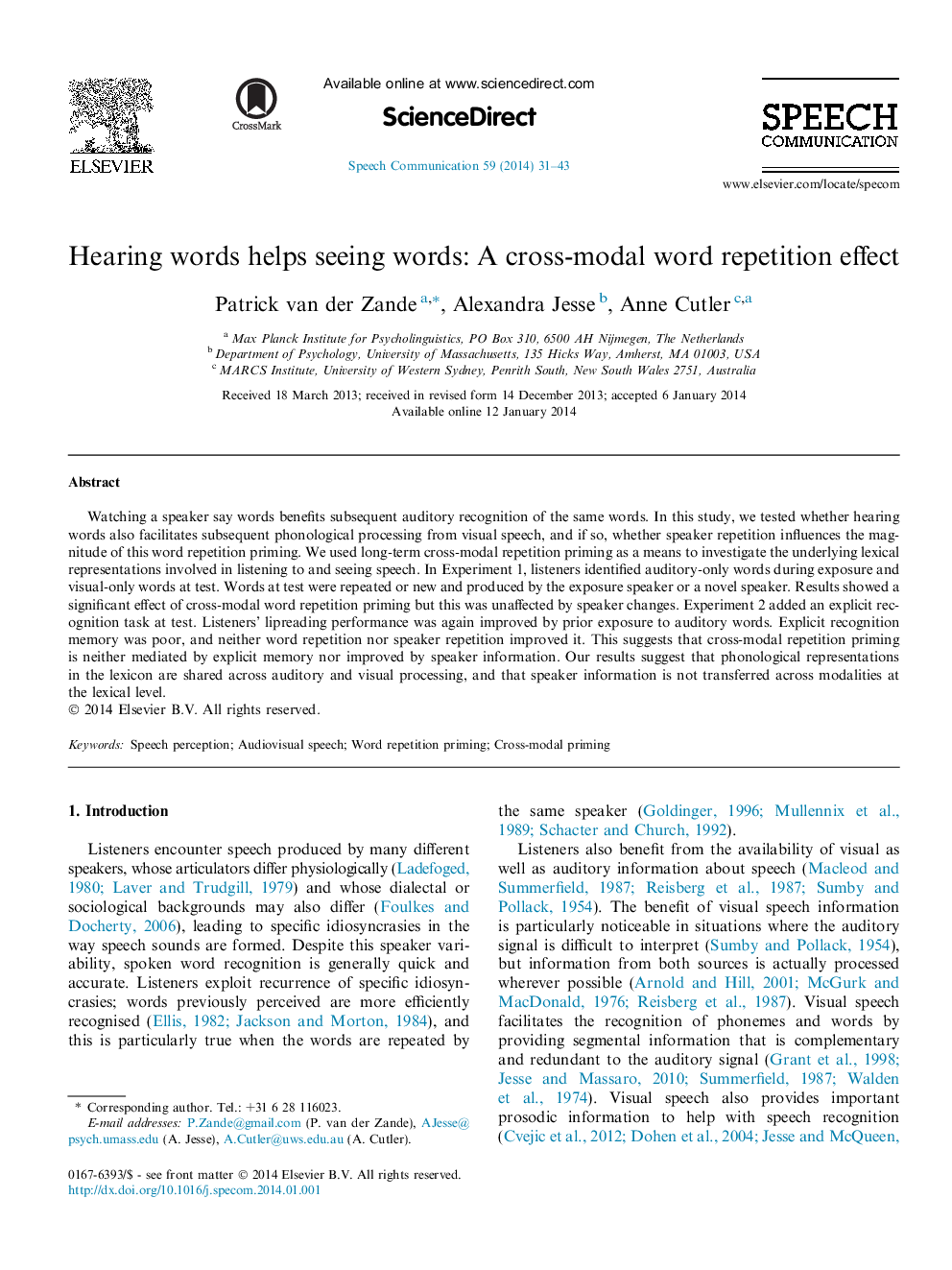| Article ID | Journal | Published Year | Pages | File Type |
|---|---|---|---|---|
| 565906 | Speech Communication | 2014 | 13 Pages |
•Long-term word repetition priming occurs across modalities from auditory-only exposure to visual-only test.•Neither speaker repetition nor word repetition affect explicit memory for auditory-only items during visual-only test.•The magnitude of the word repetition priming effect is not modulated by speaker identity.•Speaker-specific information is not transferred across modalities at the lexical level.
Watching a speaker say words benefits subsequent auditory recognition of the same words. In this study, we tested whether hearing words also facilitates subsequent phonological processing from visual speech, and if so, whether speaker repetition influences the magnitude of this word repetition priming. We used long-term cross-modal repetition priming as a means to investigate the underlying lexical representations involved in listening to and seeing speech. In Experiment 1, listeners identified auditory-only words during exposure and visual-only words at test. Words at test were repeated or new and produced by the exposure speaker or a novel speaker. Results showed a significant effect of cross-modal word repetition priming but this was unaffected by speaker changes. Experiment 2 added an explicit recognition task at test. Listeners’ lipreading performance was again improved by prior exposure to auditory words. Explicit recognition memory was poor, and neither word repetition nor speaker repetition improved it. This suggests that cross-modal repetition priming is neither mediated by explicit memory nor improved by speaker information. Our results suggest that phonological representations in the lexicon are shared across auditory and visual processing, and that speaker information is not transferred across modalities at the lexical level.
